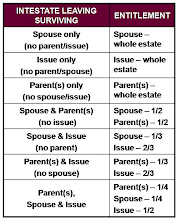Louis Daniel Armstrong (August 4 1901 – July 6 1971) nicknamed Satchmo or Pops was an American jazz trumpeter and singer. Coming to prominence in the 1920s as an innovative cornet and trumpet playerArmstrong was a foundational influence on jazz shifting the music's focus from collective improvisation to solo performers. With his distinctive gravelly voice Armstrong was also an influential singer demonstrating great dexterity as an improviser bending the lyrics and melody of a song for expressive purposes. He was also greatly skilled at scat singing or wordless vocalizing.
Armstrong grew up at the bottom of the social ladder in a highly segregated city but one which lived in a constant fervor of music which was generally called “ragtime” - not yet “jazz”. Despite the hard early days Armstrong seldom looked back at his youth as the worst of times but instead drew inspiration from it “Every time I close my eyes blowing that trumpet of mine—I look right in the heart of good old New Orleans...It has given me something to live for.”
Armstrong had many hit records including "Stardust", "What a Wonderful World", "When The Saints Go Marching In", "Dream a Little Dream of Me", "Ain't Misbehavin'", and "Stompin' at the Savoy". "We Have All the Time in the World" featured on the soundtrack of the James Bond film On Her Majesty's Secret Service, and enjoyed renewed popularity in the UK in 1994 when it featured on a Guinness advert. It reached number 3 in the charts on being re-released.
The nickname Satchmo or Satch is short for Satchelmouth (describing his embouchure). In 1932 then Melody Maker magazine editor Percy Brooks greeted Armstrong in London with "Hello Satchmo!" and it stuck.
In 1964, Armstrong knocked the Beatles off the top of the Billboard Top 100 chart with "Hello, Dolly", which gave the 63-year-old performer a U.S. record as the oldest artist to have a #1 song. His 1964 song, "Bout Time" later featured in the film "Bewitched" (2005). In 1968, Armstrong scored one last popular hit in the United Kingdom with the highly sentimental pop song "What a Wonderful World", which topped the British charts for a month; however, the single did not chart at all in America. The song gained greater currency in the popular consciousness when it was used in the 1987 movie Good Morning, Vietnam, its subsequent re-release topping many charts around the world. Armstrong even appeared on the October 28, 1970 Johnny Cash Show, where he sang Nat "King" Cole's hit "Rambling Rose" and joined Cash to re-create his performance backing Jimmie Rodgers on "Blue Yodel #9".
Armstrong was posthumously awarded the Grammy Lifetime Achievement Award in 1972 by the Academy of Recording Arts and Sciences. This Special Merit Award is presented by vote of the Recording Academy's National Trustees to performers who, during their lifetimes, have made creative contributions of outstanding artistic significance to the field of recording. Recordings of Armstrong were inducted into the Grammy Hall of Fame, which is a special Grammy award established in 1973 to honor recordings that are at least twenty-five years old, and that have "qualitative or historical significance. In 1995, the U.S. Post Office issued a Louis Armstrong 32 cents commemorative postage stamp.
Armstrong died of a heart attack on July 6 1971 at age 69 11 months after playing a famous show at the Waldorf-Astoria's Empire Room. Shortly before his death he stated "I think I had a beautiful life. I didn't wish for anything that I couldn't get and I got pretty near everything I wanted because I worked for it." He was residing in Corona Queens New York City at the time of his death. He was interred in Flushing Cemetery, Flushing in Queens New York City.
Today, the house where Louis Armstrong lived for close to 28 years (and which was declared a National Historic Landmark in 1977) is a museum. The Louis Armstrong House Museum, at 34-56 107th Street (between 34th and 37th Avenues) in Corona, Queens, presents concerts and educational programs, operates as a historic house museum and makes materials in its archives of writings, books, recordings and memorabilia available to the public for research. The museum is operated by the City University of New York's Queens College, following the dictates of Lucille Armstrong's will. [wikipedia]












2 comments:
ah...this one my favourite old time singer! One song for the Kr-ok next week, CU there!
Okie dokie see u on 28jul for just one more 'ole' times sake. Cheers
Post a Comment